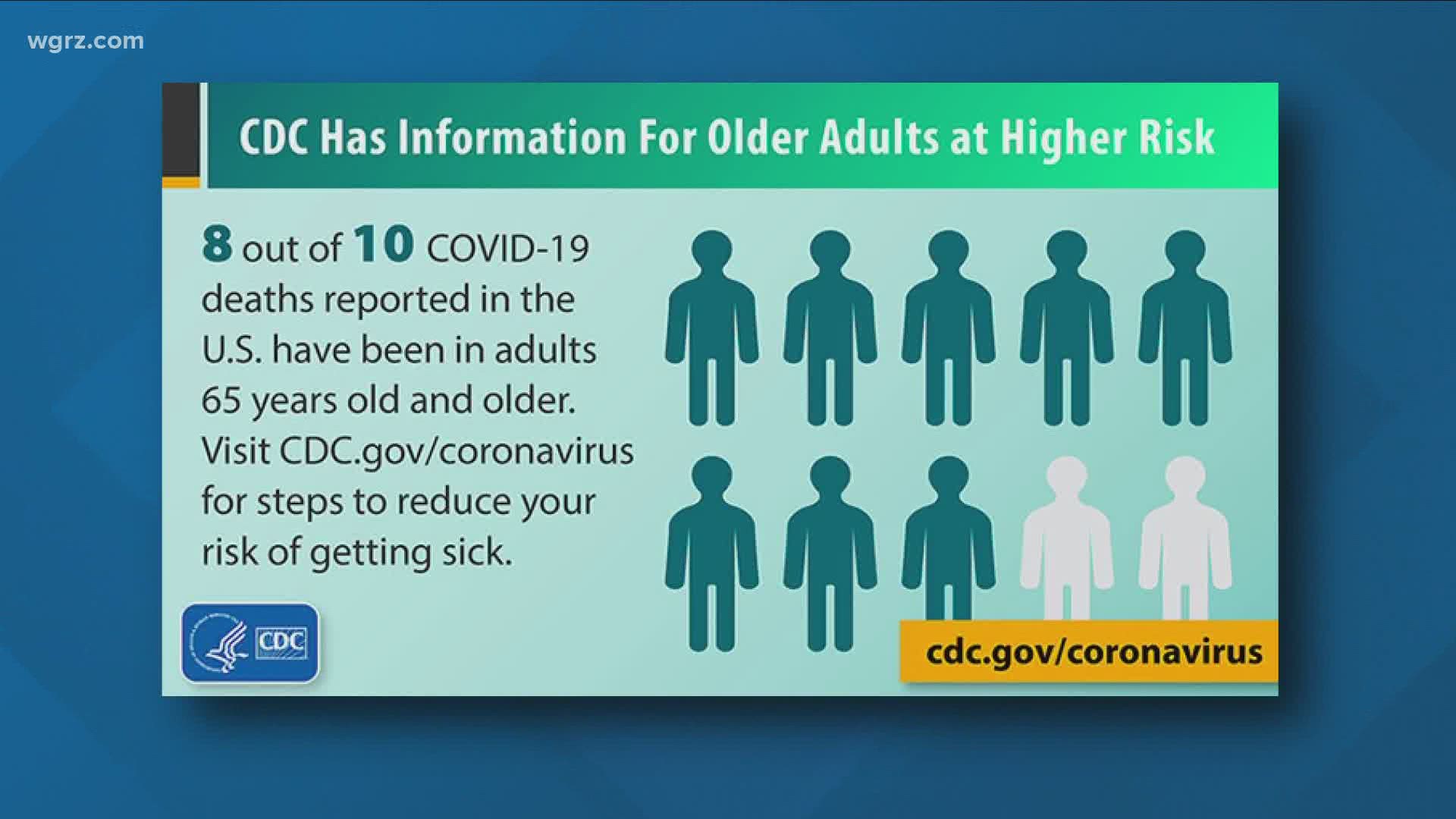BUFFALO, N.Y. — Though many states are starting to reopen and regain some degree of normalcy in the midst of this pandemic, the reality for seniors in assisted living communities and nursing homes is — life is still very much on lockdown.
Per the CDC, seniors are among some of the most vulnerable when it comes to COVID-19, especially hospitalizations and deaths. In fact, the CDC published data showing 8 out of 10 COVID-19 deaths reported in the U.S. have been adults 65 years old or older.
While monitoring the physical health of our elderly is paramount, especially now, experts say that it's equally as important to consider the toll that social isolation is having on their mental and emotional health.
Sue Nawojski is the director of admissions and marketing at Tennyson Court, an assisted living community in Buffalo. She said, while their community had an easier time adjusting to necessary rules and regulations due to their small group home plan, COVID-19 did require even more vigilance, empathy, and creativity from staff members to ensure the overall wellness of residents.
"COVID has impacted residents without them having COVID," Nawojski said. "There are residents who are suffering and having issues who don't have COVID. There are going to be deaths that are going to happen during this time period that have nothing to do with them actually having COVID, but may have something to do with their emotional health during COVID."
From creating a unique visiting station equipped with plexiglas to keep residents safe, to putting more time into outdoor walks and activities and elevating dining experiences, Nawojski told 2 On Your Side that whereas in the past a lot of responsibility would be put on the families, now staff is stepping in and having even more conversations with residents.
Extreme social isolation, though necessary during these times, can also have serious consequences for elderly.
According to Dr. Michael Mineo, CMO at Millard Fillmore Suburban Hospital, social interaction is a crucial part of keeping cognitive abilities sharp — especially as one gets older.
"Being social isolated can actually worsen their current state. It can worsen their dementia, add increased confusion and agitation," Mineo stressed.
So, what is the solution?
Well, according to Mineo and others in the medical field, the answer isn't an easy one.
Don't expect to see safety precautions at Tennyson Court or other assisted living communities and nursing homes to start easing up anytime soon. As frustrating as it may be, protecting the lives of the most vulnerable is crucial.
That said, having conversations about the importance of mental and emotional wellness and considering ways to help nurture that of the elderly is one way to make these difficult times a bit more bearable.
For more information on how to help your loved one or someone you know who may be quarantining at home, in assisted living or in a nursing home and is struggling to cope with isolation, visit the Erie County Department of Health's Department of Senior Services.

